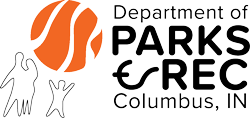What is a Pollinator Park
A Pollinator Park/Habitat must have two basic needs: diversity of native flowering plants and egg laying or nesting sites.
Benefits of Pollinator Parks
Did you know that pollinator habitat and native plants do much more than support pollinators? Pollinators and their habitats:
- Increase ecological resilience of communities
- Improve water quality by filtering stormwater and runoff
- Reduce the heat island effect
- Are low maintenance and water efficient
- Provide many more wonderful benefits
Pollinator Parks in my Community
- Columbus Pollinator Park at Blackwell Park – Owned by the Columbus Parks and Recreation Department, this park is 8 acres of pollinator friendly habitat. The park is host to many native plants, birds, bees, and butterflies. There are informational signs throughout the park to tell you some of the species you might encounter while in the park. The parks department also holds educational sessions to teach the importance of pollinators. We also hold “Weed Wrangles” to educate the public on invasive species and help manage the invasive species throughout the park.
Resources


